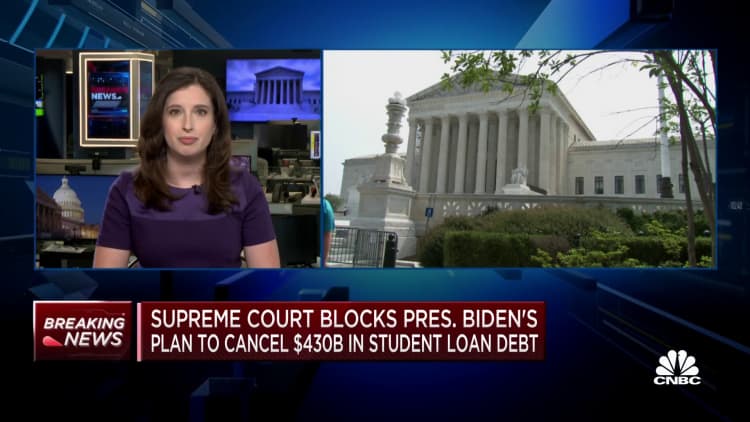Gatot Adriansyah | Istock | Getty Images
The share of federal education debt going to graduate students is at its highest point in history, a new report by the U.S. Department of Education finds.
Alarmingly, as graduate school borrowing increases, wages for those with an advanced degree haven’t risen nearly as much.
“A closer look at borrowing trends and the outcomes of graduate programs … suggest cause for concern,” department economists wrote.
“There is generally very little correspondence between the amount students borrow to finance their advanced degrees and their labor market outcomes,” they said.
In 2006, the Education Department introduced the Grad PLUS loan program, which lets graduate students borrow as much as it costs to attend their program. Meanwhile, the most an undergraduate can borrow in government loans in an academic year is typically $12,500.
In its new report, the department analyzed debt and earning outcomes at roughly 5,300 graduate programs. It found that between 2000 and 2016, the share of graduate students who borrowed more than $80,000 to pay for their degree was almost 11% in 2016, up from just 1.4% in 2000.
On average, graduate students with debt in 2016 borrowed around $66,000 in total to finance their advanced degree, up from roughly $53,000 in 2000.
“If these trends continue, graduate loan disbursements may exceed undergraduate disbursements in the next few years,” the department economists wrote.
Earnings haven’t kept up with debt levels
To be sure, those with graduate degrees tend to earn more than those who stopped their education after college.
In 2022, workers age 25 and older with only a bachelor’s degree had median weekly earnings of $1,432, compared with $1,661 for those with a master’s degree, according to the U.S. Bureau of Labor Statistics.
Still, as graduate debt has shot up, “the earnings premium for graduate degrees has stagnated or decreased,” said higher education expert Mark Kantrowitz.

The earnings premium is the difference in average income between people with different levels of college education, as well as high school graduates, after adjusting for a number of variables, including race and location.
The Education Department found that the earnings premium for those with a master’s degree has stayed between 55% and 63% over the last several decades, suggesting the “net returns of graduate degrees may have fallen over the past 20 years.”
“This is causing more graduate and professional school students to have trouble repaying their student debt,” Kantrowitz said.
 EU News Digest Latest News & Updates
EU News Digest Latest News & Updates



